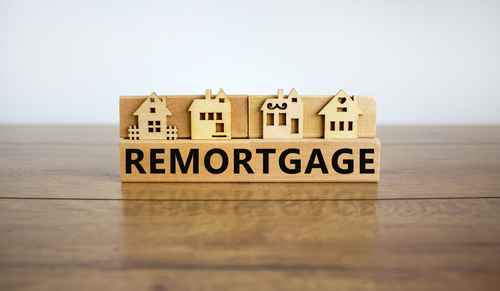Saving for a house deposit is the biggest and most important step towards owning your own home. It can seem like a huge task, however saving now will help you out in the future. To buy a property with a mortgage, you need a deposit of at least 5% of the cost of the home. In fact, most banks will want first time buyers to have a 10% deposit in 2022. Saving a bigger deposit will open up more mortgage options for you. You’re also likely to get lower interest rates and lower monthly repayments to boot.
Find out more about choosing an estate agent and compare estate agent fees HERE.
What Is A Mortgage Deposit?
A mortgage deposit is a lump sum you pay upfront towards the price of a property that you have decided to buy. Mortgage lenders loan you the remaining portion to make up the total price you have agreed to pay. Mortgage deposits are usually expressed as a percentage of the property price. Putting down a larger deposit will usually mean that you will have smaller monthly payments and lower interest rates. This is something you should bear in mind when deciding the price of property you should go for. Generally speaking, you should get a good deal with a 15% deposit, however, the best rates are usually available to those who can put down a deposit of 25% or more.
In today’s market, first time buyers will usually need a deposit of at least 5% of a property’s value in order to be offered a mortgage. Mortgage lenders then lend you the remaining 95%. So if you wanted to buy a £200,000 property, you would need to save at least £10,000 and borrow £190,000.
Many people choose to save up more than 5%, for many different reasons. According to research from Experian, first-time–buyers saved an average mortgage deposit of 17% in July 2019 (£30,595 – this time last year, the average mortgage deposit was £26,498).
What Is A First-Time Buyer Mortgage?
First-time buyer mortgages are specifically designed for people who are new to the housing market. Some companies may use incentives such as cashback schemes, to entice you to get a mortgage with them. They may also offer 95% or 100% mortgages, which only require a 5% deposit or none at all. However, remember that you’ll still need to meet strict affordability criteria to get approved.
Learn all about choosing an estate agent and compare estate agent fees HERE.
Why should I save a bigger mortgage deposit?
Althoguh 5% is the minimum amount needed to put towards a mortgage, there are several reasons why it could be of benefit to save more:
- Better choice of mortgage deals – If you manage to save more than 5% then mortgage lenders will consider you less of a financial risk. This means that they are more likely to accept your mortgage application and will also offer you lower interest rates.
- Cheaper monthly repayments – Due to the above your loan will be smaller and therefore so will your monthly repayments be.
- Likelihood of acceptance – When you take out a mortgage, your lender conducts affordability checks which are based on your income and outgoings. If you put down the smallest possible deposit, you will be paying more each month on your mortgage which is not particularly favourable. Furthermore, lenders prefer to lend you no more than three times your annual salary. If your salary is fairly low this means you might not be able to borrow enough meaning a larger deposit would be needed for your desired property.
- Less risk – if you own a bigger portion of your home outright there is less chance of finding yourself in ‘negative equity’. Negative equity means you owe more on your mortgage than the property is worth and is a situation nobody wants to find themselves in.
How Is My Affordability For A Mortgage Worked Out?
When you apply for your first mortgage, the lender will assess your affordability. They will look at your annual salary (which you will have to evidence with bank statements and/or payslips) alongside any other income you receive. They will compare them against all of your outgoings such as credit card and loan repayments, household bills, entertainment, car running costs, childcare, travel and even your weekly shopping bill. They will want to know about ALL your expenditures.
Lenders will also ‘stress test’ your ability to keep up with payments if your circumstances were to change such as if you lost your job. They will also consider what would happen if interest rates were to rise.
The mortgage lender will also check your credit history to assess whether or not you are a reliable borrower or not. They will use all of this information to test your affordability and decide how much they are willing to lend you.
We strongly emphasise that you put together a detailed budget before you start looking for a property.
Find out about choosing an estate agent and compare estate agent fees HERE.
Is There Any Financial Help For First Time Buyers?
There are, in fact, several Government schemes available for first time buyers. They are all designed to help you get a foot on the property ladder. Here is a brief summary of them all:
These schemes can help you buy a place with as little as a 5% deposit. There are five main schemes, three of which are Help to Buy:
- Mortgage Guarantee Scheme – the government offers guarantees to lenders so they can offer 95% mortgages to people with 5% deposits.
- Help To Buy – Equity Loans – this is where the government lends first-time buyers up to 20% (40% in London) of the cost of a new-build home. Available in England only.
- Help To Buy Shared Ownership – where you buy a share of your home (between 10% and 75%) and pay rent on the rest.
- Lifetime ISA – where the government can boost your savings by up to £1,000 a year. You must be under 40 to open one.
- Help to Buy ISA – where the government can top up your savings by up to £3,000 when you buy a new home. This type of ISA is now closed to new applicants.
Learn all about choosing an estate agent and compare estate agent fees HERE.
What Other Costs Are Involved In Buying A Home?
Apart from your mortgage deposit and your monthly mortgage payments, there are other costs associated with buying a home. These include:
- Survey costs – Mortgage companies will insist that you get a survey carried out in order to make sure that they are making a sound investment. They will check for structural faults that might indicate the property is not worth what they are lending you.
- Conveyancing Solicitor fees – These are paid to your solicitor and cover the cost of the legal work associated with buying a home. This includes conveyancing costs, paperwork and checking environmental factors, planning permission issues or other hidden problems.
- Removal costs
- Buildings insurance
- Initial furnishing and decorating costs
- Mortgage arrangement – Some lenders charge an arrangement/booking fee to secure a fixed-rate, tracker or discount deal.
- valuation fees – This is paid to your lender to check how much the property you are buying is worth.
- Stamp Duty – This is paid to the Government when via your solicitor. There is no charge on properties of £125,000 or less and first-time-buyers in England do not pay Stamp Duty on the first £300,000 for properties worth up to £500,000.
- Land Registry fees – The Land Registry registers properties under their owners’ name. When you buy a property the Land Registry charges a fee to transfer the register entry into your name.
When Is A Good Time To Buy My First House?
There’s a huge amount of personal and financial commitment involved in buying a home, so it’s important to have stability in your life.
It Helps to be in permanent employment; a steady income shows mortgage companies you’re more likely to meet monthly mortgage repayments. REMEMBER: if you can’t keep up with the payments, you may lose your home. Getting a mortgage when you’re self-employed can be a lot harder, since your income may be considered unpredictable.
Lenders like to see that you’ve been living at a long-term, permanent address. You can use your parents’ address if you’ve been staying in student housing or other temporary accommodation. It is very important to register on the electoral roll there.
It is beneficial to build up your credit history. If you don’t have much credit history, it can be harder for companies to assess the likelihood of you paying them back. They may refuse you a mortgage on these grounds.
Finally, the economic climate may affect your decision to buy your first home. It can impact house prices and interest rates. If you buy property just before a dip in property prices, you may get into negative equity (where you owe more on your mortgage than the current value of the house), making it very difficult to move home again.






